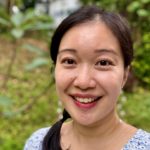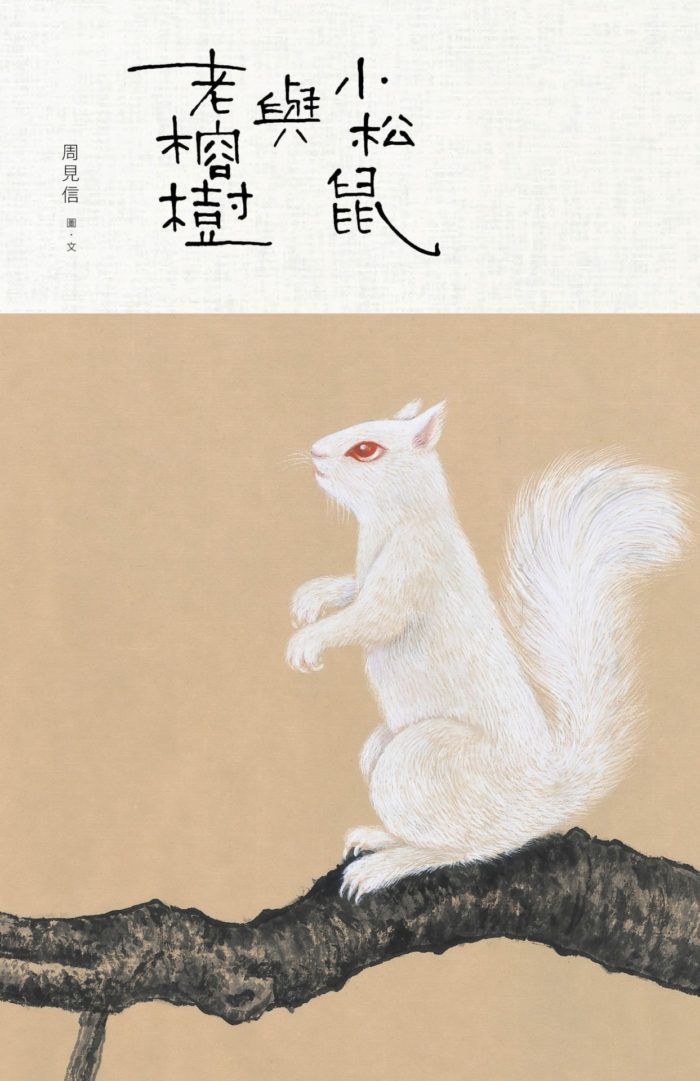The 8th Bai Meigui Translation Competition: Picture Book (from Taiwan)
The results of the 8th Bai Meigui Translation Competition are in!
We are delighted to announce that the winners of the 8th Bai Meigui Translation Competition, our 3rd competition open exclusively for school pupils, are:-
1st place: Hongyu Jasmine Zhu 朱弘昱 (Mercersburg Academy, Pennsylvania, USA)
Runner-up (special commendation): Joy Huang Si Xuan (Anglo-Chinese School, Singapore)
Many congratulations to our winners! While we are unable to provide feedback on individual entrants, our judges have kindly provided some general comments below. Hongyu Jasmine Zhu will be mentored by Helen Wang and her translation will be published by Balestier Press in 2023.
General Comments from the Judging Panel
The judges would like to congratulate all the entrants on their translations this year. Overall, the quality of the entries was excellent. Literary translation involves a subtle balance of technical skill and creative flair, that is, the ability to convey the voice and mood, and to portray the characters in a story. This year’s entrants displayed great sensitivity to language, creativity, and accuracy, as well as providing thoughtful commentaries on the art of literary translation itself.
While several submissions stood out, the winning entry delighted the judges with its vivid word choices, lyrical rhythm, keen understanding of the nuances of both Chinese and English and the perceptive commentary that the winner submitted. Very many congratulations! The judges look forward to seeing this translation in print.
Translators never stop learning all through their lives. We hope you will take the comment that follows as both thought-provoking and friendly, and bear it in mind in your future translation work. The judges noted that all entrants chose to translate the 他 as 'he' in every instance, when referring to the animals. The preponderance of male animals in contemporary children’s picture books worries many librarians, teachers and parents. It is also arguable that 他 is less gender-specific in Taiwan than ‘he’ is in English, and that 'she' (or even 'it') would have been an acceptable alternative. The judges would encourage young translators to experiment with their translations of 他 in future.
Very many thanks to our esteemed judges, Nicky Harman, Amanda Ruiqing Flynn and Jennifer Feeley, and to our mentor Helen Wang for their generosity in giving up their time and expertise for free to facilitate this fantastic opportunity for young people around the world.
Information about the Competition (now closed)
****************************
We are delighted to announce that – following the success of our first two picture book competitions in 2018 and 2020 – our competition this year will again be open exclusively to students in secondary education (between 11 and 18 years old), and will once again be run in partnership with the Singapore Book Council and Balestier Press. It’s free to enter (the link is at the bottom of this page), so if you are learning Chinese at school this could be a fantastic opportunity.
Our text this year is written and illustrated by award-winning Taiwan author and illustrator Zhou Jianxin. The story is set in his hometown of Tainan and addresses themes such as the impermanence of life through a deceptively simple, and beautifully illustrated, children's fable. This book was showcased at the Bologna Children's Bookfair in Italy in 2017.
The Prize
The author of the winning entry will have the chance to be mentored by award-winning translator Helen Wang, and to see their translation published as a picture book in a bilingual edition of the text by Balestier Press. The winner will be formally announced in November, and the winning translation will be featured in a special programme at the 2023 Asian Festival of Children’s Content (AFCC) Singapore. The winning book will be marketed at the festival, and to schools and libraries throughout the UK, Singapore, and worldwide.
The Judges
We're honoured to have a panel of renowned translators and experts on children's fiction to judge the competition.
 Nicky Harman lives in the UK and translates full-time from Chinese, focussing on fiction, literary non-fiction, and occasionally poetry. She also works on Paper-Republic.org, a non-profit website promoting Chinese literature in translation, as a volunteer and a Trustee. She was co-Chair of the Translators Association (Society of Authors, UK) from 2014 to 2017, and blogs on Asian Books Blog.
Nicky Harman lives in the UK and translates full-time from Chinese, focussing on fiction, literary non-fiction, and occasionally poetry. She also works on Paper-Republic.org, a non-profit website promoting Chinese literature in translation, as a volunteer and a Trustee. She was co-Chair of the Translators Association (Society of Authors, UK) from 2014 to 2017, and blogs on Asian Books Blog.
 Amanda Ruiqing Flynn was born in Singapore, spending her formative years in the United Kingdom and working as a creative writing teacher in Taiwan for seven years before returning to Singapore in 2019. She has a BA in Chinese and Development Studies from SOAS, University of London, and an MFA in Art and Design. She encourages her students to fall in love with the written word through explorations of the beauty of language and its subtle nuances. She is also a Chinese-English translator, an artist and a writer, recently a winner of Singapore's Writing the City Showcase Competition.
Amanda Ruiqing Flynn was born in Singapore, spending her formative years in the United Kingdom and working as a creative writing teacher in Taiwan for seven years before returning to Singapore in 2019. She has a BA in Chinese and Development Studies from SOAS, University of London, and an MFA in Art and Design. She encourages her students to fall in love with the written word through explorations of the beauty of language and its subtle nuances. She is also a Chinese-English translator, an artist and a writer, recently a winner of Singapore's Writing the City Showcase Competition.

Photo credit: Shi Lessner
Jennifer Feeley has translated several books from Chinese into English, including Not Written Words: Selected Poetry of Xi Xi, which won the 2017 Lucien Stryk Asian Translation Prize, and the White Fox series by Chen Jiatong. In 2019, she was awarded a U.S. National Endowment for the Arts Literature Translation Fellowship. She holds a PhD in East Asian Languages and Literatures from Yale University.
The Translation
Before you begin to translate, think carefully about who your ideal 'reader' is. What age they would be, and whether they might need eg some extra explanation, or whether in fact some small details should be omitted, or translated "freely" to keep their attention. Keep your reader in mind constantly while you are translating and while you are making decisions about which words or phrases in English to use.
The book is written in traditional (sometimes called full-form, or complex) characters. These may be less familiar to you, and so we have provided a 'text-only' file here, in both traditional and simplified (there is a link to this on the left of this screen -- scroll down for the simplified version). However, it is really important when you are translating a picture book that you think about how your translation will 'work' with the pictures, so don't only look at the text, or it won't make much sense!
If you want to listen to an audio recording, there is a full video recording of the story on the Taiwan Ministry of Culture website.
(And if you’re hesitating about whether this is for you, or if you need more inspiration, read what the winner of our first picture book translation – Jasmine Alexander – has to say about her own experience!)
To open the book and start translating, please click on the image of the book cover below.
How to Enter
The competition deadline is 1pm (UK time) (8pm Singapore time) on September 11th, 2022. Only entries submitted using the online submission form will be accepted this year.
Prepare a single pdf file which includes your translation, your 400 word commentary (see below), and the statement of integrity (see below). Do not include your name/identifying information in your pdf attachment. Translate all of the text in the picture book (including the title of the book). Don’t worry about formatting your translation like the original picture book, but please include the page numbers so we can see which page you are translating.
Commentary
As well as translating the story, we would like you to include with your translation a short piece of writing (in English, maximum 400 words) answering the questions in italics below and explaining your reasons:-
Imagine you are presenting your translated story to an audience who knows nothing about Taiwan or about Chinese culture. What extra information (if any) would you need to tell them? Were there any specific choices you made in your translation to adapt it for the needs of an English-language reader? If so note these and explain your reasons.
(If appropriate, some of this commentary may be included as a translator’s preface in the final publication.)
Statement of Academic Integrity
Please also include the following statement of academic integrity, extracted from the University of Leeds’ code of conduct, to confirm that what you are submitting is your own work. Submissions which do not include this statement cannot be considered for the competition:-
I promise that in the attached submission I have not presented anyone else’s work, in whole or in part, as my own and I have not colluded with others in the preparation of this work.
When you have prepared your pdf, and are ready to submit your translation, please enter using the online submission form here:-
Enter the Competition
NB: As well as the pdf file, you will be asked to provide some information about yourself, including to confirm that you have permission from a parent or guardian. The information provided will not be available to the judging panel, who will judge all entries anonymously. All data provided will be processed in line with our Data Protection Statement and will not be used for any other purpose.
The winner will be announced in November 2022.
Please note that we will not normally be able to provide feedback on entries, but thank you, in advance, for your submission. Good luck!



